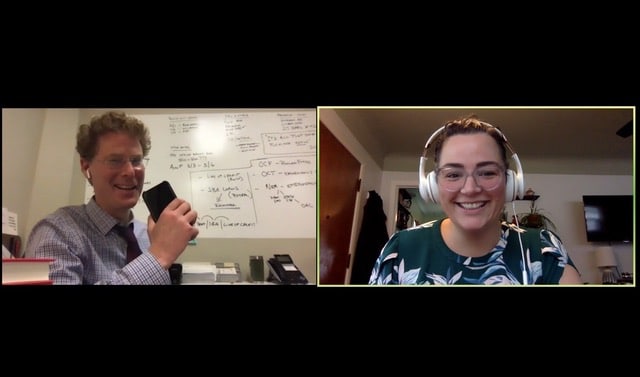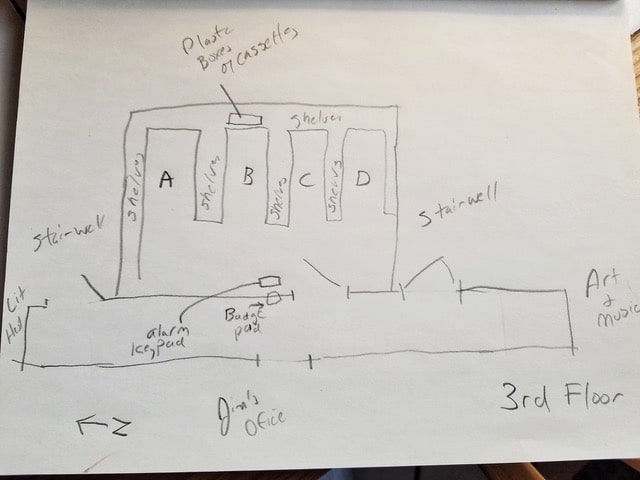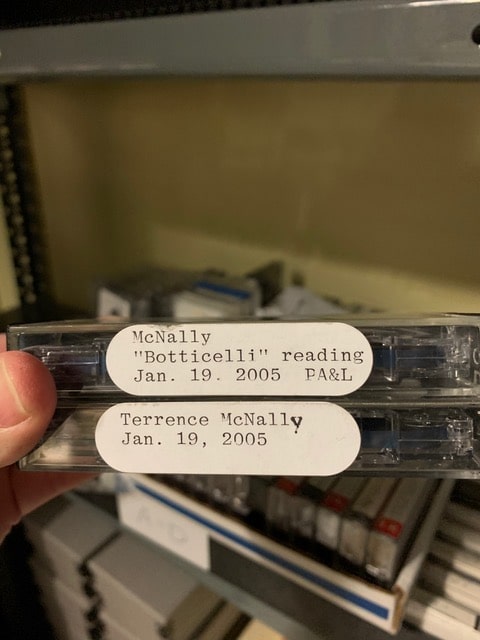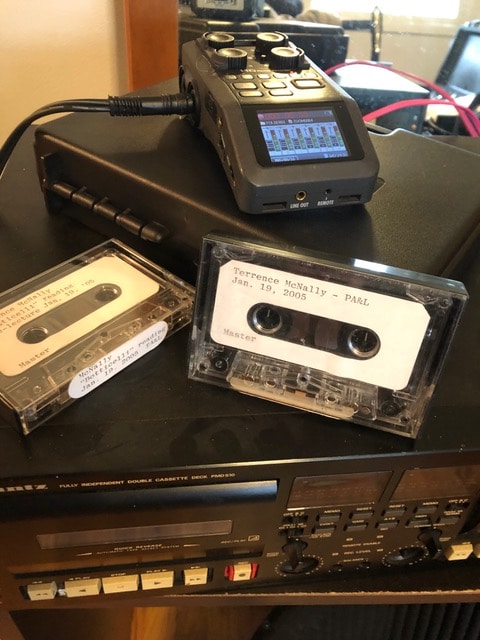Making The Archive Project in the midst of a pandemic — Librarians are the heroes of this story!

Tune in to OPB on Wednesday, May 6, 2020 at 10:00 p.m. to hear the broadcast of this episode, or listen to it anytime on our website. You can also subscribe to the podcast on iTunes, Stitcher, Spotify, or wherever you get your podcasts.
From Literary Arts’ executive director, Andrew Proctor:
Soon after the COVID-19 pandemic began to impact Oregon, access to the Oregon Public Broadcasting (OPB) building was limited severely—and for good reason. As a vital source of information for the whole state, OPB could not afford to have the virus impacting any of their staff. This meant that we had no way to record Literary Arts’ podcast and radio show, The Archive Project. We immediately went into re-broadcasts as we took stock of the significant challenges facing us all.
When the playwright Terrance McNally died on March 24, 2020 of a COVID-19 related illness, it shocked me. McNally was, I believe, the first major American writer to die due to the pandemic, and it struck me as such a terrible loss of wisdom and perspective just when we need them most. I knew he had once spoken at Portland Arts & Lectures (PAL), but could not figure out why we had never broadcast his talk. A quick search of our files revealed the reason: We did not even have a copy of the audio recording from his visit. Aside from our office, the only other place a copy could be would be at the Multnomah County Library, which houses all of Literary Arts’ audio archives.
So I sent an email to Jim Carmin, the John Wilson Special Collections Librarian, who is also a long time subscriber to PAL and a close friend. Jim told me that normally he would be happy to look for the McNally audio recording, but that he was not allowed in the Library—no one was…well, except for one person.
He did forward my message to Vailey Oehlke who is the head of the entire Multnomah County Library system and was the only person allowed to go in or out of the building at that time. Vailey volunteered to go down to the main branch on 10th Avenue in downtown Portland, and look.

Jim drew her a map of where the audio recording cassettes are stored [photo above], took a picture of the map, and texted it to Vailey. Vailey then drove downtown, entered the dark and empty Library and, following Jim’s map, FOUND THE ORIGINAL CASSETTE RECORDINGS! She immediately texted me a photo of them in her hand [photo below], and what followed were the nerdiest set of “OMG!” kind of texts you can imagine. Vailey walked the cassettes the few blocks over to Literary Arts HQ, where I have been working alone these last six weeks.
Just one problem: I don’t own a cassette player.

So I then messengered the two cassettes down to the OPB studios where our producer, the fabulous Crystal Ligori, picked them up after her shift on All Things Considered and took them home where she was able to convert the cassettes to digital files using a system she rigged up at her house [photo below]. Once the files were converted, Crystal shared them with the Literary Arts team via DropBox, and we could finally listen to them. And it turns out McNally’s talk is wise and funny. We knew right away it would make a rich and nourishing episode of The Archive Project.

But, with OPB’s studios all but off limits, I could not see how we would be able to record the introduction and other necessary elements to turn this newly-accessed audio into a polished podcast and radio show episode. Once again, Crystal devised a plan.
I drafted an episode introduction and the Literary Arts staff weighed in thoughtfully on that edit. Crystal used both Zoom and, simultaneously, the Voice Memo app on my phone to record me remotely. From there, Crystal was able to edit the introduction, McNally’s talk, and put it all together to create the finished product.
Not every episode of the The Archive Project is this complicated, but the story of how this one was made illustrates both how many people it takes to make the show, and also how this pandemic is forcing us to work in new and unexpected ways. If there’s any silver lining in this moment, it’s that there is a lot of innovation happening that will be here long after COVID-19 has gone.
And another thing that will be with us, always: Incredible librarians doing heroic deeds for us all.
Tune in to OPB on Wednesday, May 6, 2020 at 10:00 p.m. to hear the broadcast of this episode, or listen to it anytime on our website. You can also subscribe to the podcast on iTunes, Stitcher, Spotify, or wherever you get your podcasts.


